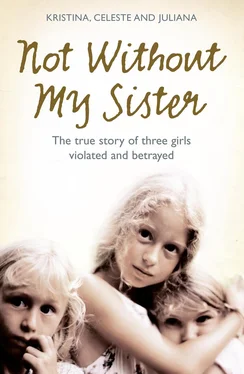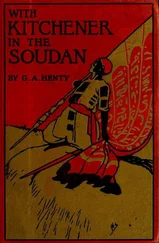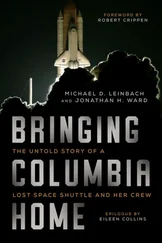Thrown out, he enrolled at a drama school in London and in his holidays travelled throughout Europe. ‘I was searching for the meaning to life,’ he explained.
I listened earnestly as he described how, in pursuit of life’s meaning, he read many spiritual books and dabbled in the occult and meditation.
I shivered. It had been relentlessly drummed into us by Mo that drugs and Ouija boards were dangerous, because they could open the door of your mind to the Devil.
When he was telling me about those years, Dad said, ‘I ended up deeply depressed and disillusioned with life.’
‘Wasn’t drama school what you wanted?’
‘It was empty. Without the Lord, it’s meaningless. Just husks, sweetie.’
It was at this low point that one day he received a call from one of his mates who had just returned from Istanbul. This friend had planned to walk on foot to India, but instead had been converted by the Children of God en route, and had returned to England to spread the word.
Dad was taken aback by the dramatic change in his previously disturbed and doped-up friend. He now seemed confident, with purpose and direction. ‘He told me it was all thanks to the Children of God. I was curious.’
In the hippie era of peace and love, the message proclaimed by the Children of God seemed exciting: find a new life in Christ, drop out, live communally, forsake materialism and share all things, just like the early disciples. But this was not just another zealous evangelical group from America – it was God’s Endtime Army, the elite, who would lead a lost world in need of salvation during its darkest hour.
The Children of God believed that with the end of the world looming near, pursuing anything else in life seemed pointless. Dad was convinced. He gave away most of his possessions and turned up at the doorstep of a commune in Hollingbourne in Kent with just a small suitcase, ready for his new life as a disciple.
His eyes lighting up at the memory, Dad told me, ‘It was amazing. Everyone lived under the same roof and shared all things just like the Early Christians in the Book of Acts. It was the family I had been searching for.’
New members were told to choose a Bible name to reflect their new life. Dad chose Simon Peter. His full-time job was now to go out on to the streets and witness – the name they used for trying to win converts. Handing out literature for a donation was called ‘litnessing’.
Always full of new ideas, Dad came up with a novel way to litness. He laughed as he described it. ‘I dressed up as a clown, with a bright red nose and a funny hat that had a bouncing little plastic birdie on top.’
He wiggled his fingers on top of his head and made a face. I giggled. ‘I bet you looked silly!’
‘Oh, I did – but I was a clown. Clowns are allowed to look silly. I’d jump in front of passers-by and make them laugh before handing them a tract and asking for a donation. I became a star litnesser and fundraiser – I made hundreds of pounds a week for the Family.’
I laughed as I tried to imagine my dad clowning it up in London, a city I didn’t remember, although I’d been born there. Street solicitation was against the law, however, and Dad had run-ins with the police. Of course, he didn’t see anything wrong in what he was doing. He was obeying God.
Dad told me he met my mum in Hollingbourne, as they both joined the same commune as new disciples on the same day. She was just sixteen and had been recruited straight from school. Young and idealistic, she thought the Children of God was a bona fide missionary society. My parents were ‘married’ by the group, before being legally married in church. After a three-day honeymoon in the Lake District, they squatted in a large house in Hampstead that the Children of God had taken over.
Dad used his training as an actor to do stage performances, dramatically reciting whole portions of the Mo Letters – missives from the prophet that were mailed regularly to every commune as a guide for us disciples to follow and live by. He loved the thrill of acting, and his talent soon set him apart as a sort of celebrity within the group. Spurred on by his success, he recorded more of these Mo Letters in a series of cassette tapes called Wild Wind , which were distributed across the communes for disciples to listen to. While Dad was busy and fulfilled, Mum, who was pregnant, was terribly ill, and it must have been a great relief when, on 29 January 1975, after three days of difficult labour, I was born in the small attic room on the third floor of the Hampstead Home.
Becoming new parents did not stop Mum and Dad from pursuing their new-found mission to save the world. Missionary teams were being set out and my parents received a ‘prophecy’ to go to India. A disciple was not supposed to have a will of his own, but had to follow God’s will by praying and hearing from Him in a prophecy. These prophecies gave the stamp of Divine approval on any plans or decisions that needed to be made.
In reality, the British authorities had begun to investigate the Family’s activities, especially their aggressive proselytizing and soliciting of donations, and Mo told everyone to move from the UK and go on to greener pastures, such as India, South America and the Far East – places where the authorities would be far less likely to care about what a group of Western dropouts did.
When our little family first arrived in India we went to an apartment in a block in Bombay designed for the middle classes, although it was about the size of an English council flat. It had three bedrooms, which we shared with two other couples and two single brothers. After a few weeks my parents found a two-bedroom ground floor flat in Khar, a subdivision of Bombay. There were so many people staying there, disciples coming and going from other parts of India, it was always crowded. They had very little furniture except two single beds and a table and chairs in the living room.
Mum was heavily pregnant again, but right up to the birth she and Dad slept on a sheet on the floor of our small communal apartment, because the mattresses were infested with bedbugs. There were often up to twenty people in the flat, and Mum would try to hide them from the landlord. My baby sister was born in June 1976 in a private nursing home nearby and named Kristina after Dad’s mother. I was only eighteen months old, but I adored her from the moment I saw her. I would lie next to her on Mum’s sheet on the floor and put an arm around her, smothering her with damp kisses. I became the doting older sister, and loved to hug her and watch Mum change her nappies and nurse her. We were so close in age our bond was unbreakable. I called her Nina.
To Dad, many things about India were a huge culture shock. Despite the fact that he had been a hippie and had travelled to Cyprus and Israel and throughout Europe, he hated the heat, the dirt and the disease he found in Bombay. He also contracted a bad case of hepatitis and was in hospital for a few weeks after Kristina was born.
‘The water and the food made me ill, I had diarrhoea so badly I lost tons of weight. And I felt humiliated as a foreigner having to sell tracts on the street, like a beggar, when there were so many beggars around me and children without a roof over their heads or food to eat,’ he said.
Dad’s diet and that of the commune was a constant source of distress. They had little money at first since everything they earned had to come from selling tracts in the street for minuscule sums. At times, they could only afford to buy rice and lentils day after day.
Stoically soldiering on in the steaming heat of Bombay, Dad struggled to make more sense of his personal role. He was intelligent and had been well educated and got a job at the local radio station writing jingles. According to Mo the Final Battle of Armageddon was only a short time away, and Dad tried to come to terms with the teeming masses in just India alone that wouldn’t be saved.
Читать дальше












